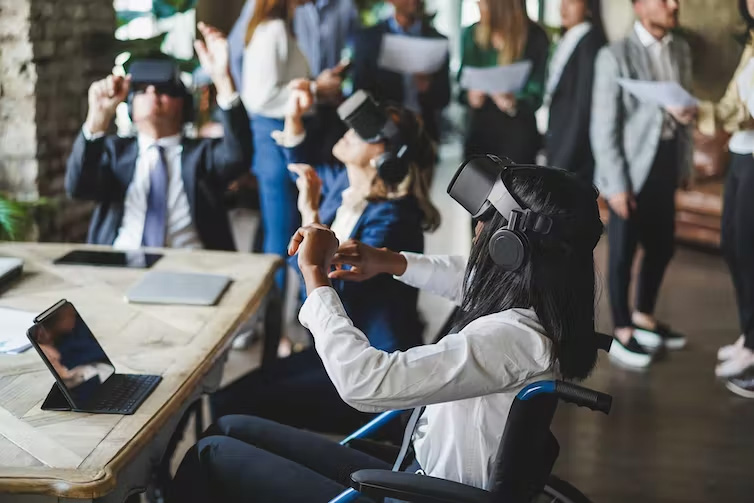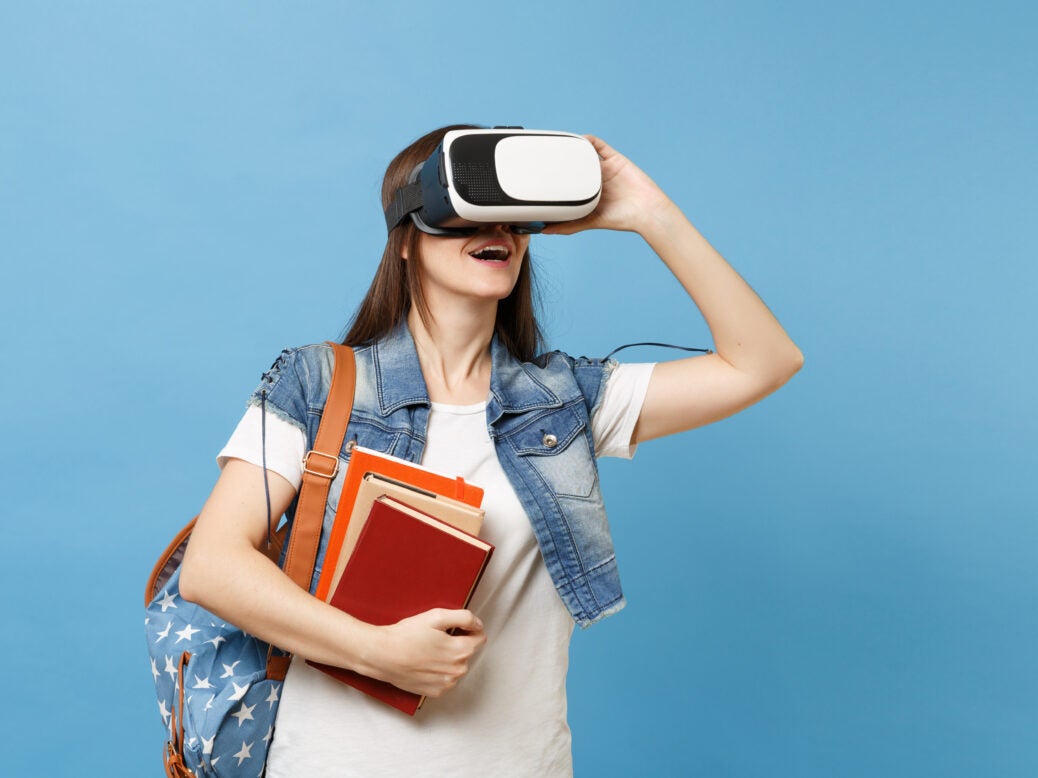The future of education is in experiential learning and VR

- Procedures of education have not stored rate with improvements in technological innovation but the crucial of alter is starting to be extra obvious.
- Virtual truth (VR) is getting adopted additional readily as the gains of experiential learning is getting realised.
- VR is creating training a lot less traditional and advancing K-12, higher education and vocational education.
Instruction is the basis of a robust financial state. It boosts human money, drives efficiency and boosts economic output.
For people, education paves the way to receive new abilities, develop vital pondering and analytical know-how, lead to financial welfare, acquire a feeling of objective and condition one’s job. Therefore, its influence on persons, societies, governments and the environment is plain. Still techniques to teach people have not often stored pace with technological developments. That stated, modify is imminent and will come more quickly in excess of the up coming 10 years.
Evolving education technologies for experiential mastering
In truth, progress have now been visible during the COVID-19 pandemic when governments were pressured to shut the doorways of schools and universities throughout the world for weeks at a time. The United Nations Instructional, Scientific and Cultural Firm (UNESCO) supported the international training sector with digital equipment, programmes and methods to guarantee continuity of understanding. Other nations all over the entire world rolled out on the net instructional applications such as Alef Instruction in the UAE, Vschool in KSA and MOE E-Learning in Egypt, to name a several.
Although these solutions were vital, they largely concentrated on transferring understanding, not the practical and in-individual practical experience learners essential to grasp ideas. Immediately after all, whilst some master by way of concept, many others learn by way of apply. The evolution of educational technological know-how heading ahead need to so deal with experiential studying. When coupled with innovative pedagogies, augmented actuality, digital actuality (VR) and mixed reality are positioned to deal with this want and develop a competitive benefit for all stakeholders involved.
Enhancements in technological know-how have penetrated most sectors and remodeled them administratively or in services supply. The transformation, nonetheless, however requires further more technological developments to disrupt education and learning. These advancements’ infiltration of education and learning units has grow to be an increasing crucial.
Disruption and innovation
The disruption we are observing in present day digitalizing environment is serving to raise accessibility, increase excellent and increase the affordability of education globally. Arguably these interventions are more than enough to travel transformative change. In addition, environmental pressures and COP26 objectives (from the 2021 United Nations Local climate Transform Convention) will push the digitalizing of education and learning streams, the place feasible and cost-effective, inside of and outside the house the classroom, decreasing the reliance on textbooks, notebooks and pencils as vital mastering resources.
We have to have to adapt to an evolving landscape and nurture our younger generations to help outmatch our results. While colleges and universities have been progressively targeted on private advancement, some technologies can expedite the system. VR is a foremost example and arguably a match-changer for the subsequent era of learners, graduates and vocational learners and permits experiential studying.
It enables pupils to immerse on their own in an interactive practical experience in which they can visualize their actions’ outcomes 1st-hand. Coupled with the metaverse, college students and teachers can talk and share although immersed, conquering house and time constraints. Eventually, they can consolidate previously obtained understanding and apply abilities acquired by conventional e-discovering.
VR is a major instance and arguably a video game-changer for the next generation of college students, graduates and vocational learners and enables experiential discovering.
Picture: Steve Bambury

While investigate has demonstrated that VR positively influences students’ discovering results, it can also increase student-teacher interactions by sensible hybrid implementation, irrespective of whether in or out of the classroom. With VR as a classroom resource, lecturers can inspire college students and produce a more collaborative and interactive researching atmosphere. VR can be built-in into classic instructing to generate a special experience adapted to just about every student’s skill, design and style, rate and generate to understand, making certain their readiness to progress as a result of strong assessment.
Maximizing VR’s effects for experiential discovering
VR supports much more powerful visualization, increases instructional conversation, improves collaboration, strengthens students’ simple understanding, and delivers globally. Research and enhancement should coincide with unlocking the highest output and absolutely employing its benefits, as with any new technology.
It really should be noted that VR does somewhat restrict human conversation if not appropriately monitored and launched with a guided programme and can trigger isolation in youthful generations. Even now, with the proper analysis, developments and safeguards, the advantages of VR outweigh the hazards. VR is a technological innovation that can transform graduates’ skillsets immediately regarded via useful applications. Finding out through participate in, first-hand ordeals and utilized knowledge generates a a lot more desirable surroundings for pupils and success in much more powerful skillsets.
No matter whether by VR or other experiential studying equipment, instructional technological know-how is at a turning position for leaders, educators, regulators and other stakeholders to choose a proactive tactic to commit in upcoming generations and journey the wave of adjust. We have started to see these ideas pan out in nationwide transformation plans, even in emerging economies these as the United Arab Emirates (UAE) and the Kingdom of Saudi Arabia. The UAE simulates the potential through its recently inaugurated The Museum of the Potential in Dubai, an architectural question.
The museum showcases an epic display screen of “Tomorrow Nowadays” by augmented and virtual actuality, visually demonstrating how technological know-how reshapes our foreseeable future and how our “Future Heroes” can find out through engage in and build new skillsets.
As governments around the world contend to be far more resourceful and invest in social infrastructure, technologies this kind of as VR are altering the status quo making training fewer regular and advancing K-12, higher education and learning and even vocational schooling. They are driven to boost outcomes and establish a a lot more robust, much better skilled and knowledgeable workforce. These are the forces of transform and we consider now is the time to act.



